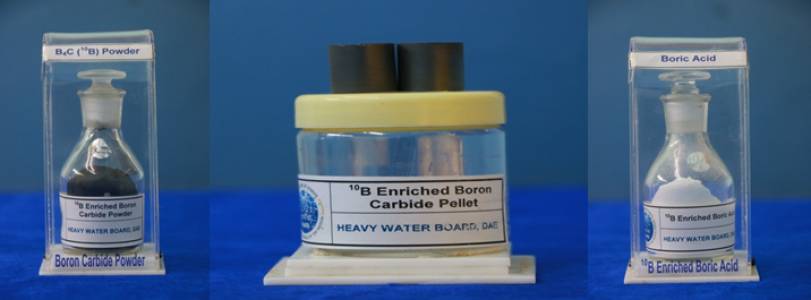Description
Boron: Essential Trace Element for Plant and Human Health
Boron, a metalloid element represented by the symbol 'B' and atomic number 5, plays a surprisingly crucial role in both plant and, to a lesser extent, human health. While required in only trace amounts, its absence can lead to significant deficiencies with far-reaching consequences. This detailed description explores the multifaceted nature of boron and its applications.
Boron in Plants: A Key Nutrient
Boron is an essential micronutrient for optimal plant growth and development. Its functions are multifaceted and vital:
- Cell Wall Integrity: Boron is essential for the formation and stability of cell walls, particularly in the synthesis of pectin, a complex carbohydrate crucial for cell structure and strength. Deficiency leads to weakened cell walls, resulting in stunted growth and increased susceptibility to diseases.
- Sugar Transport: Boron aids in the transport and translocation of sugars within the plant. This is critical for energy distribution throughout the plant, affecting fruit development, flowering, and overall productivity.
- Pollen Germination and Tube Growth: Boron plays a crucial role in pollen germination and the growth of pollen tubes, directly impacting fertilization and fruit set. Boron deficiency can significantly reduce pollination efficiency and yield.
- Hormone Synthesis and Regulation: Boron influences the synthesis and action of various plant hormones, affecting growth patterns and overall plant physiology.
- Nitrogen Metabolism: Boron is involved in the assimilation and utilization of nitrogen, a crucial nutrient for protein synthesis and overall plant health.
Symptoms of Boron Deficiency in Plants:
- Necrotic spots: Brown or dead patches on leaves, often starting at the tips and margins.
- Stunted growth: Reduced plant size and overall yield.
- Thickened leaves: Leaves may appear abnormally thick and brittle.
- Reduced flowering and fruiting: Fewer flowers and smaller, malformed fruits.
- Heart rot in root vegetables: Internal breakdown of root crops.
Boron in Human Health: A Beneficial Trace Element
While the role of boron in human health is less well understood compared to its role in plants, research suggests it may contribute to:
- Bone health: Some studies indicate that boron may improve calcium absorption and bone density, potentially reducing the risk of osteoporosis.
- Brain function: Boron's influence on brain function is still under investigation, but some preliminary research suggests a potential link to cognitive function and memory.
- Hormone regulation: Boron might play a role in regulating sex hormone levels, although more research is needed.
- Improved magnesium and calcium metabolism: Enhancing the absorption and utilisation of these essential minerals.
Sources of Boron:
Boron is naturally present in many foods, including:
- Fruits (apples, pears, grapes)
- Vegetables (leafy greens, broccoli)
- Legumes
- Nuts
Important Note: While boron is essential, excessive intake can be toxic. Always consult with a healthcare professional before supplementing with boron.
Boron Applications: Beyond Plants and Human Health
Boron's unique properties extend to various industrial applications, including:
- Glass manufacturing: A key component in borosilicate glass (e.g., Pyrex), known for its heat resistance.
- Ceramics: Used in the production of certain ceramic materials.
- Nuclear industry: Used in control rods in nuclear reactors.
- Flame retardants: Certain boron compounds possess flame-retardant properties.
This description provides a comprehensive overview of boron, its vital roles, potential benefits, and various applications. While further research continues to unveil its intricacies, its significance in plant nutrition and potential influence on human health remain undeniable. Always consult relevant literature and experts for specific applications and safety guidelines.
